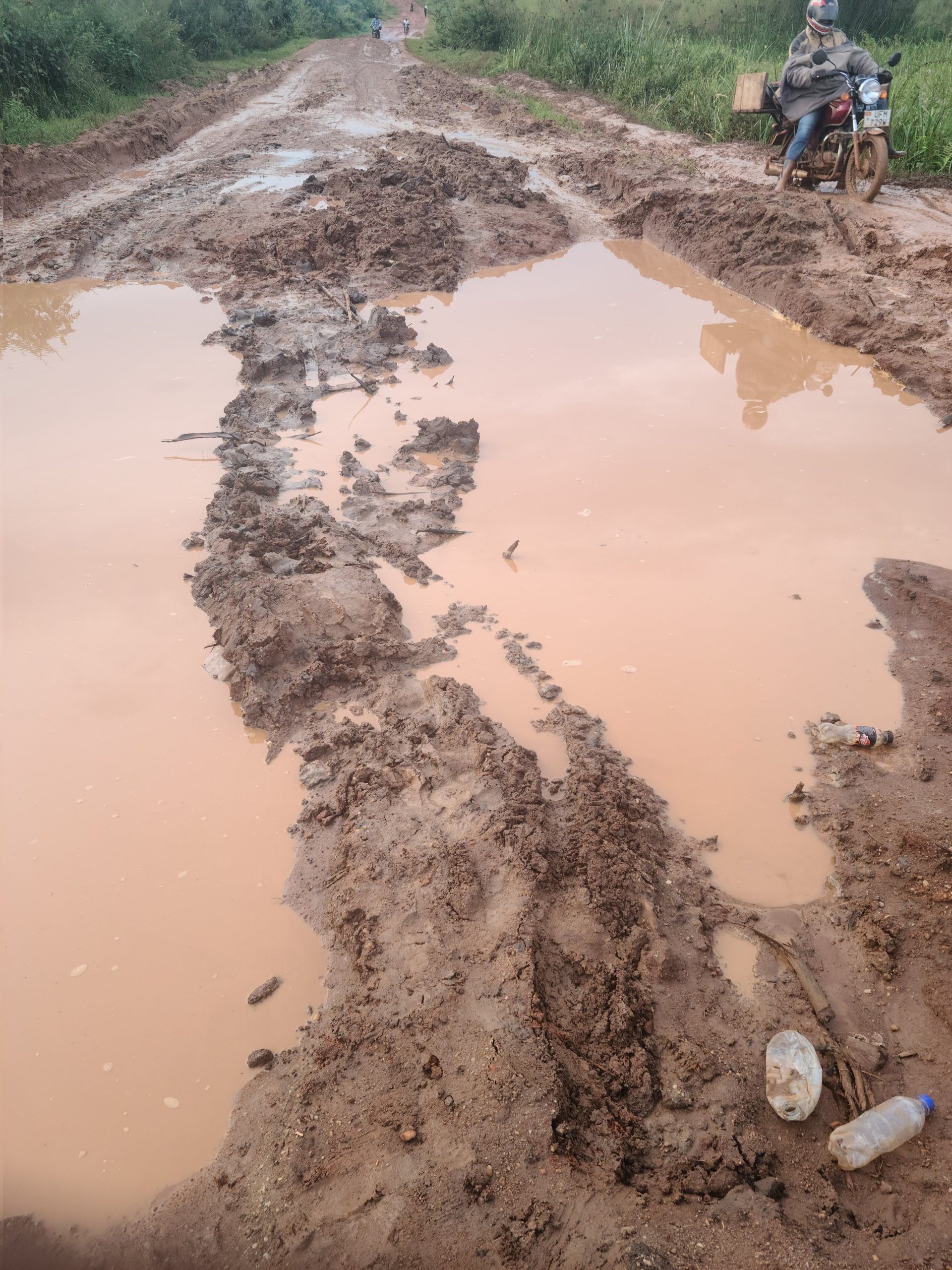Kole District – The cost of building a 20-kilometer stretch of first-class murram (shs1.8 billion) is now higher than the cost of upgrading an HC II to an HCIII and nearly equals the cost of building a seed secondary school, Kole North MP Dr Samuel Opio Acuti said on Monday.
The above insight was part of his response to the Ministry’s clarifications on July 30 regarding inflated costs for road construction under the national oilseed project (NOSP).
On July 25, 2024, the Member of Parliament for Kole North wrote to the Minister of Local Government, expressing concerns about the cost of the oil seed gravelling project.
In his letter, he informed the Minister and the Ministry that the community road project will cost shs90.5 million per kilometre, despite the fact that the Ministry of Works and Transport (MoWT) has a cost of shs30 million per kilometre for first class murram, and contracts in some districts are shs15 million per kilometre.
He demanded clarification on the issue. He also raised the issue on the floor of Parliament on August 8, 2024, and Prime Minister Robinah Nabbanja directed the Minister of Local Government to halt the procurement process until the costs were harmonised.
The Kole North MP states that the procurement will cost up to shs70 billion, which Ugandans will bear because it is a government loan. He goes on to say that lowering rates would allow for 3 to 6 times more kilometres of road to be covered.
The Ministry of Local Government responded on July 30, 2024, through a letter signed by Yasin Sendaula, the NOSP coordinator on behalf of the Permanent Secretary. The Ministry defended the inflated costs of shs90.5 million per km, citing several reasons.
One reason is that the *indicative costs of shs30million per km and Local Government costs of shs15million per km only cover routine maintenance, not road construction.
The Ministry asserts that the shs30million and Local Government costs of shs15million per km covers only bush clearing, grading; shaping, spot gravelling and not full gravelling and tree planting.
Hon Opio Acuti has disputed the Ministry’s clarification, citing a road rehabilitation contract for Kole district worth shs16.5 million per kilometre. The figure he provided includes gravelling with first-class murram and tree planting.
In addition, he has also shared BOQs for another road in Kole district done using force account (district equipment) at not more than shs16.5million per km which includes full gravelling.
“It is unthinkable to foresee that under a contract arrangement this would cost shs90.5million per km,” he states.
According to the MP, the shs30million quoted in the National Budget Framework Paper was for commercial works rather than force account, as the document also mentioned costs for railway rehabilitation and tarmacking.
“None of the government agencies involved in roads does railway construction or tarmacing of national roads,” he stated, adding that “the costs cannot therefore be based on the use of district equipment. Furthermore, one of the NDP III goals was to reduce the cost of developing Uganda’s transport infrastructure, and gravelling costs are included.”
The Ministry also clarified that oilseed roads are more complex than district roads, which are routinely maintained. Some of these roads are in swampy and hilly places. This will involve construction of bridges and box culverts as the main focus.
However, MP Opio Acuti has disagreed with the above. He maintains that the roads in Kole district, which cost shs16.5million per km, had more than four swamp crossings and included the construction of a box culvert.
“Its complexity therefore is similar to that of the oil seed project … .the road earmarked for Kole district under the project is a road requiring simple drainage structures such as pipe culverts and has no box culvert according to its design.”
He cited a single-line box culvert on the 18-kilometer Ogur-Alito-Aboke road, which he said cost less than shs50 million. “Therefore, even the complex structures talked about are not that high.”
Price surveys guided the indicative prices of shs90.5million
The Ministry’s third defence revealed that price surveys determined the indicator price of shs90.5 million. The Ministry also noted that the twelve contracts awarded by MoWT averaged shs101 million per kilometre.
MP Opio Acuti is now questioning why rehabilitation costs incurred by local governments were not included in price surveys that were as low as shs15million per km.
Second, the Lawmaker stated that the World Bank’s January 2024 report on the ACDP project indicated that 46 contractors constructed a total of 1118 km of gravel roads under the ACDP project, many of which were completed in 2022 or 2023. The contract totalled shs36.63 billion.
“This translates to a cost per km of shs32.28million similar to the MoWT cost of shs30million per km. Why wasn’t this data used as part of the price surveys considering that a big number of the ACDP project districts are similar to the oil seed project districts?”
“In addition, Uganda Road Fund Budgeting guidelines gives indicative figures for regravelling in each region and ranges from shs7million to shs12million per km for district roads. Why wasn’t this indicator price considered?”
Prices cannot come down
The Ministry also clarified that it is not practical or tenable to revise engineering estimates downward. However, MP Opio Acuti describes this statement as “contradictory to their other statements in the response that the price may come down due to competitive bidding.”
The MP refers to the Auditor General’s report on the ACDP project, which found that ten of the eleven contracts reviewed were overcertified and overpaid by shs827 million. The Auditor General directed that this amount be recovered.
In addition, the report revealed that 12 out of 14 contractors received irregular payments totalling more than shs584 million. “This was a clear demonstration that the costs had been inflated but also syndicated corruption where both the local governments, the project engineering team and the contractor connived to inflate figures. The discovery was made through an engineering audit. This implies that the work could have been done at a lower cost.”
Price escalation of materials
In their July 30 clarification to MP Acuti, the Ministry stated that the MoWT indicative price of shs30million per km was established four years ago, and that since then, the major cost drivers for road construction, such as fuel, cement, iron bars, and aggregate, have increased by 25% to 41%.
However, Opio Acuti believes that a 25% to 41% increase cannot justify a 200% increase from shs30m to shs90.5m per km. He added that, in comparison to the MoWT indicator price of shs2.5b, the costs of building a km of tarmac have only increased by 100%, to shs5b.
“The 200% rise therefore is not consistent with the rise in material costs and lower rise in tarmacing costs, both of which use the same materials.
“I have endeavoured to understand the huge discrepancies in the costs per km for road construction from every angle possible, and my findings remain the same, the shs90.5million per km is unreasonable, unjustifiable and illogically too high!…we are instead tripling the costs without putting the interest of the country as per NDP III at heart.
“I therefore request the engineering estimates (EEs) used to arrive at these costs, which I believe are grossly inflated!” Kole North MP concluded.
Source: tndNews.




















